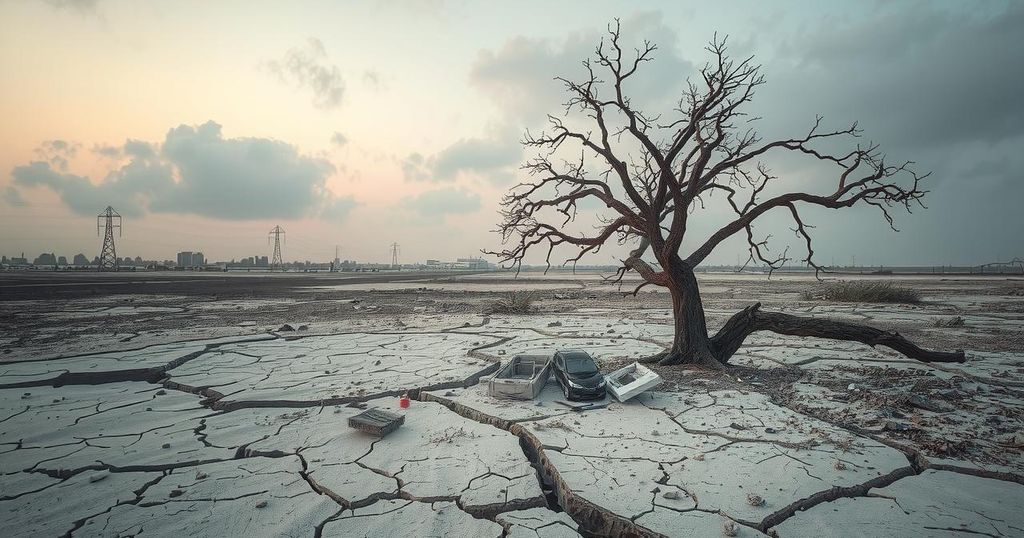Recent Earthquake in Morocco Rekindles Trauma from 2023 Disaster

A 5.2-magnitude earthquake hit northern Morocco, prompting fears reminiscent of the 2023 Atlas quake. While local authorities reported no casualties or major damage, psychological distress was evident among residents recalling past trauma. Mental health organizations highlight the ongoing effects of PTSD in the community, stressing the necessity for adequate support and resources.
A magnitude 5.2 earthquake struck northern Morocco just before midnight on Monday, with tremors felt as far as the capital city, Rabat. This latest quake quickly revived painful memories of the destructive 2023 Atlas earthquake, which had a devastating impact on the region. The epicenter was identified in the Brikcha commune, situated within the Ouazzane province, characterized by its less rugged mountainous terrain compared to the Atlas region.
Aicha Khayi, a resident of Brikcha, expressed her fear, stating, “I was almost asleep when I felt the ground shaking beneath me. I ran outside and tried to wake up my neighbors.” She reflected on her anxiety about potential loss, recalling the impact of the tragic September 2023 earthquake that claimed the lives of her distant relatives.
The Brikcha region consists of approximately 25 villages, hosting nearly 9,400 residents. In contrast to the Atlas Mountains, the roads in Brikcha are more accessible, which could potentially aid in emergency response. Nasser Jabour, from the National Institute of Geophysics, assured that significant destruction was unlikely, saying, “There won’t be destruction like in Al-Haouz. Some old buildings have developed cracks, but nothing major.”
Local authorities reported no casualties or substantial damage following the recent earthquake. Residents were advised to remain outside for several hours due to concerns about possible aftershocks. This precautionary measure highlighted the deep-seated fear resulting from past earthquakes, which spurred a widespread panic.
As fear spread beyond the epicenter, individuals from cities such as Tangier and Rabat fled their homes, often clutching their most cherished belongings. Mohamed El-Wardi, a resident from Kenitra, recounted his distress, stating, “Last time, we didn’t know anything until morning. I lost relatives in the Al-Haouz earthquake. Thank God for everything, but we can’t handle more loss and trauma.”
In the aftermath, fear permeated various cities, with residents opting to spend the night outside rather than indoors. The haunting memories of the September earthquake, which resulted in nearly 3,000 deaths and extensive destruction, contributed to their anxiety. Souhail Abounaim of Psychologues Maghreb noted that the collective trauma from the Al-Haouz disaster intensified the distress experienced following the latest tremor.
Psychologues Maghreb warned of the likelihood that many Moroccans are experiencing Post-Traumatic Stress Disorder (PTSD) stemming from the 2023 earthquake. With limited state support, many continue to struggle with psychological trauma. Abounaim remarked on the ongoing efforts to provide assistance, emphasizing the extensive resources required for a long-term recovery process.
The recent earthquake in Morocco has rekindled traumatic memories from the devastating 2023 Atlas earthquake, leading to widespread anxiety and fear among residents. While local authorities reported no significant damage or casualties from the latest quake, the psychological impact on the population remains profound. Organizations like Psychologues Maghreb continue to address the mental health needs of those affected, emphasizing the long-term nature of recovery and the need for more comprehensive state support.
Original Source: www.newarab.com








